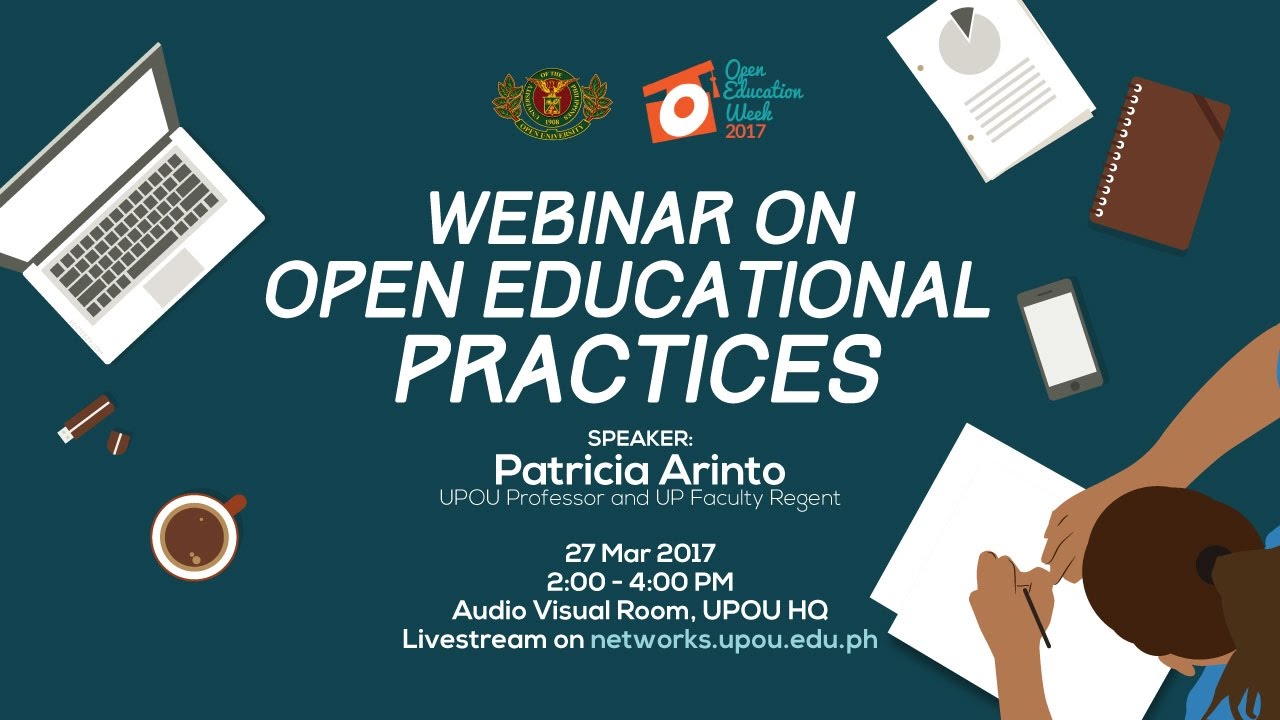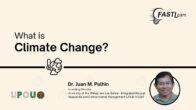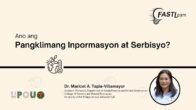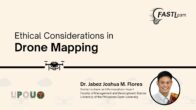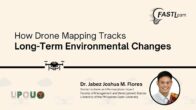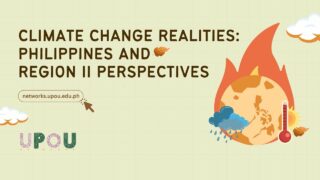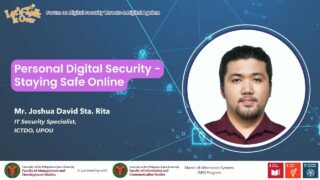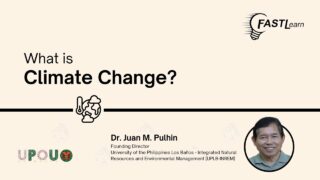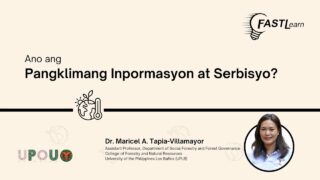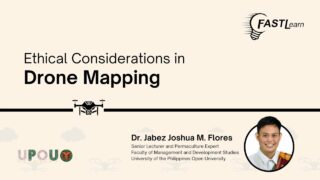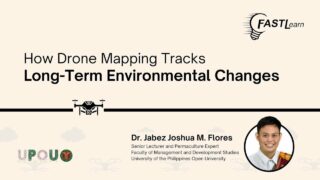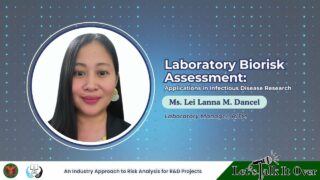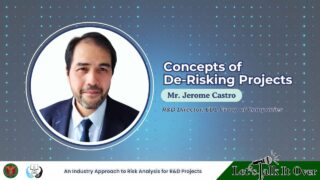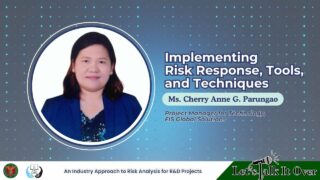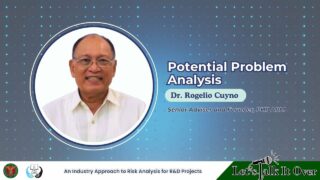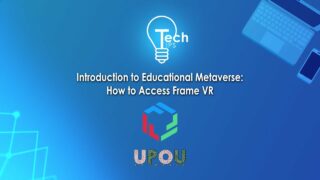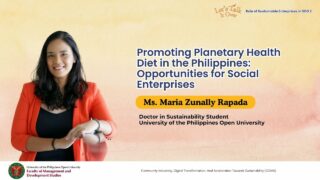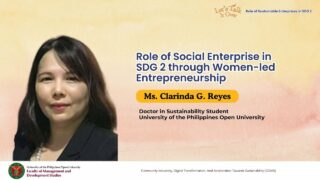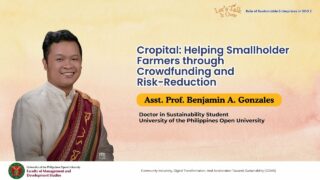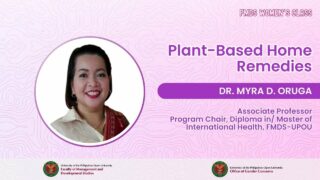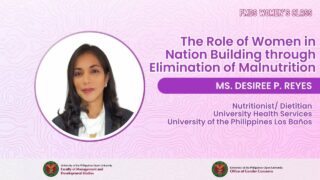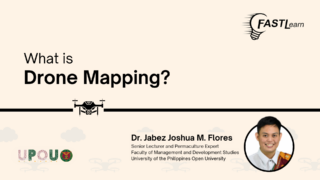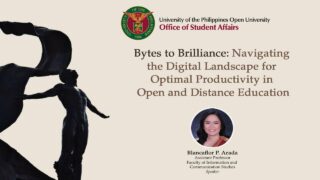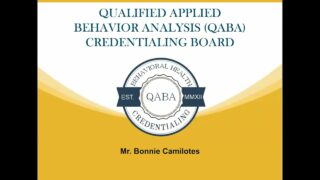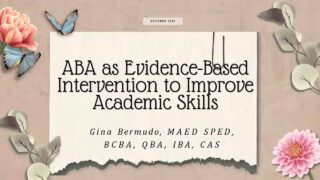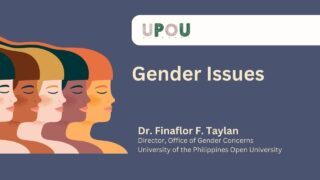In celebration of the Open Education Week on 27-31 March 2017 and in connection with the University of the Philippines Open University’s flagship program “Innovation in Teaching and Learning,” the Office of Academic Support and Instructional Services and Multimedia Center will conduct a webinar featuring Open Educational Practices with Professor Arinto as main speaker on 27 March from 2:00 PM to 4:00 PM at the Audio Visual Room, UP Open University. The event will be available on live streaming via <a href=”https://networks.upou.edu.ph”>networks.upou.edu.ph</a>.
Patricia Arinto is a professor and former Dean of the Faculty of Education of the University of the Philippines (UP) Open University and the current UP Faculty Regent. She is also the deputy principal investigator of the multi-country Research on Open Educational Resources for Development in the Global South (ROER4D) project and the theme adviser for research on MOOCs (massive open online courses) in the Digital Learning for Development (DL4D) project both funded by the International Development Research Centre of Canada. She has published scholarly articles and given keynote presentations on teacher professional development in ICT and curriculum integration, distance learning, and open education, and was recently a keynote speaker at the 2017 Open Education Global Conference held in Cape Town, South Africa on 8-10 March 2017.–>
The world celebrated 27-31 March 2017 as the Open Education Week. Sharing in this celebration, UP Open University (UPOU) conducted a free webinar on Open Educational Practices (OEP) on 27 March 2017 at the Audio-visual Room of UPOU in Los Baños, Laguna, and webstreamed live via networks.upou.edu.ph. The activity was jointly organized by the UPOU Office of Academic Support and Instructional Services (OASIS) and the UPOU Multimedia Center.
Dr. Sheila Bonito, Director of OASIS, opened the event and explained that Open Education Week was organized by the Open Education Consortium to raise awareness about free and open educational opportunities for everyone everywhere right now.
Dr. Patricia Arinto, Professor and former Dean of the UPOU Faculty of Education, and the current UP Faculty Regent, was the webinar’s resource speaker. She discussed the theoretical underpinnings of OEP and how this is applied at UP Open University. She started her presentation by explaining that open education “encompasses resources, tools and practices to employ a framework of sharing to improve educational access and effectiveness worldwide.” The open education campaign started with the Open Educational Resources (OER) Movement in 2007, with special focus on open and free content. A second phase involved OEP, which is more focused on the pedagogical practices in sharing OER to open up access to educational opportunities and allow more effective learning.
According to Dr. Arinto, OEP are “practices that support the reuse and production of OER through institutional policies, promote innovative pedagogical models, and respect and empower learners as co-producers in their lifelong learning path” and as “collaborative practice in which resources are shares by making them openly available.” She delved into the five stages of the Continuum of Open Practice and the different OEP strategies that can be employed by UPOU and other institutions. She concluded by saying that open resources is only one aspect of the learning design, another aspect is the creation of sustainable environments where OER can be shared to support high-quality educational outcomes. She stated further that access is not equal to success. Instead, equity of access should result in equity of outcomes so that learners will actually learn, and the education will be truly useful to them and to their communities.
Prof. Arinto is the deputy principal investigator of the multi-country Research on Open Educational Resources for Development in the Global South (ROER4D) project and the theme adviser for research on MOOCs (massive open online courses) in the Digital Learning for Development (DL4D) project both funded by the International Development Research Centre of Canada. She has published scholarly articles and given keynote presentations on teacher professional development in information and communication technology and curriculum integration, distance learning, and open education, and was recently a keynote speaker at the 2017 Open Education Global Conference held in Cape Town, South Africa on 8-10 March 2017.
This webinar is the first of the series of webinars that UPOU will be conducting, as part of its mandate in RA 10650 to assist relevant national agencies, higher education institutions, and technical and vocational institutions in developing their distance education programs through training, technical assistance, research and other academic programs, and as the current president of the Asian Association of Open Universities (AAOU).
UPOU caught up with the OER Movement in 2010, first by attending international conferences, then by conducting academic discourses to explore the institutionalization of OER at the university level. In 2013, UPOU shifted to the use of open educational resources in its resource-based course packages (RBCP) for most of its course offerings. In participation in the 2015 Open Education Week, UPOU first offered three free and online bridge courses to its new undergraduate students, which has since been counted with many other MOOCs that UPOU offers to the public via model.upou.edu.ph.
Students and other participants also viewed the webinar through the UPOU Learning Centers in Baguio, Cebu, Davao, Diliman and Iloilo. The webinar may also be accessed anytime at UPOU’s online repository of open educational resources, UPOU Networks. (Anna Cañas-Llamas)
